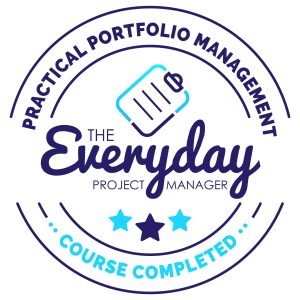 Managing projects can feel like spinning plates at the best of times, but when you’re managing multiple projects across a portfolio, the plate spinning can quickly get out of control.
Managing projects can feel like spinning plates at the best of times, but when you’re managing multiple projects across a portfolio, the plate spinning can quickly get out of control.
Our two-day Practical Portfolio Management course will give your managers a really solid grounding in the principles of effective portfolio management.
The course is appropriate for portfolio managers at all levels of experience who are looking to enhance their capability in managing multiple projects and programmes.
We’ll leave your team with practical take-aways that they can immediately apply in their day-to-day roles. We’ll cover:
Six key principles for structuring projects
Participants will understand the link from vision to benefits to objectives and who is accountable for each, we’ll look at the relationship between time, cost and quality/scope and some techniques for balancing those constraints, and structuring projects within your portfolio.
- Getting back to basics
- Looking in two directions at once
- Six key principles to structure projects well
- The project contract
Sponsorship and benefits management
Given that good sponsorship has time and again been proven to be vital to project (and therefore portfolio) success, it has surprisingly little focus compared to good project management practices. We’ll explore the role of the sponsor in landing great projects, taking in whole-lifecycle benefits management along the way and how this is the role that will – ultimately – deliver the portfolio strategy.
- The role of the sponsor
- Appointing sponsors
- Measuring benefits
- Cracking business cases
Your Hidden Weaponry – a Portfolio Governance Overview
Understanding the vital role that portfolio governance plays, how to establish it, structure it, and how to apply it consistently at each level of project delivery.
- Governance overview
- Governance structures & gateways
- Running the Portfolio Board
- The governance environment
- Challenges
Spinning plates – structuring your portfolio
How to balance the portfolio to ensure that the right projects are getting done at the right time and can be correctly resourced. We’ll also look at portfolio-level reporting to support brilliant decision making.
- The purpose of portfolios
- Creating & structuring the portfolio
- Resourcing the portfolio
- Exercise: scoring the portfolio
Portfolio Risk Management – a Primer
Portfolios frequently come unstuck due to poor risk management. There are a number of reasons for this, and we’ll unpick them all, before laying out a simple approach to risk management to be applied throughout your portfolio to make sure risks are correctly captured – and actually get dealt with!
- Overview
- Defining risk
- The risk management cycle
- Considerations for each phase
Organisational change management and dealing with stakeholders
We’re not here to get stakeholders ready for the changes we are creating – we’re here to get them actively supporting. Because effective change management can ensure simple outputs get converted into transformational change.
- Project delivery vs. organisational change
- Project managers, change managers and sponsors
- Thinking about your portfolio of change
- Key portfolio stakeholders (and how to manage them)
Effective portfolio communications
In this session we explore communications at project, programme and portfolio level. In particular, we’ll look into reporting and how to optimise your reporting to ensure that the right information reaches the right people at the right time.
- Some basic principles
- The Portfolio Overview
- The Portfolio Report
- Project-level reporting
- Reporting watch-outs
Running the portfolio – day-to-day management
We investigate what good portfolio management looks like on a day-to-day basis. What are the key activities you should be undertaking and checks you should be doing? We’ll also explore aspects of leadership such as supportive leadership, coaching and mentoring project managers.
- Curating the project delivery environment
- Managing the portfolio
- Leading the portfolio
- Changing the portfolio
Holy moly, that sounds like everything I need in a two-day course!
On the day
Each day typically runs from 09.30 to 16.30 and will incorporate a one-hour lunch break and a twenty-minute break between each of the morning and afternoon sessions. Refreshments are not included but may be provided by the client if desired.
How do I book?
If this sounds like the course for you (or your team) get in touch with us by clicking the button below to schedule a call so we can work out the details, or you can email us for more info by dropping a line to hello@everydaypm.co.uk.
This is great, but what about my sponsors?
Project sponsorship training you say? We’ve got just the thing you need in person or online.
